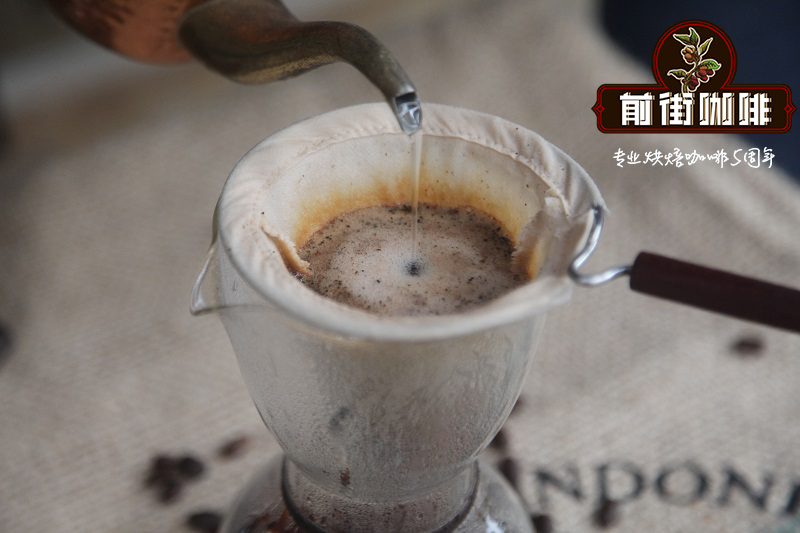What is the principle of coffee extraction? How to extract a good flavor? What is the extraction rate?

Professional coffee knowledge exchange more coffee bean information please follow the coffee workshop (Wechat official account cafe_style)
What is the principle of coffee extraction? How to extract a good flavor?
It sounds simple, but it's hard to really understand and combine it with practice. In this article, I don't want to talk too much about how water extracts oils and other substances from coffee. What I want to share with you is more practical and practical, such as how to taste the degree of coffee extraction and how to achieve perfect extraction. Let's put aside the chemical theoretical analysis of extraction for the time being.
When water and coffee meet, there will be a series of magical reactions between the two. Simply put, water can dissolve most of the taste of coffee. The taste of Beirong Street forms the final taste of coffee. The rest are insoluble substances. These substances form tiny particles that affect the final taste of the coffee. These insoluble substances cannot be considered part of the coffee extract, they are just floating in whom.
28% of the weight of roasted coffee beans can be dissolved in water. This means that no matter how much water you use, the substance extracted accounts for only 28% of the total weight of coffee. The remaining, undissolved part is the plant fiber that makes up the shape of the coffee bean.
Water is a good solvent, but it needs outside help in dissolving chemicals. If you just throw a handful of coffee beans into hot water, the water will not dissolve the substance inside the coffee. This is because the structure of the coffee bean itself is so complex that water cannot easily penetrate the outer structure and bring out all the flavor of the coffee. To help water dissolve coffee better, we can increase the contact area between water and coffee and release the flavor by "opening" the complex structure of coffee beans. You can choose to grind the coffee by hand, or you can use a coffee grinder. By grinding coffee beans into powder, you can maximize the contact area between water and coffee, thus helping the water to better complete the extraction process.
Therefore, under ideal conditions, we will grind the coffee as fine as possible, and then put the coffee powder in hot water to free the taste. But doing so can lead to extremely bitter and poor taste of coffee, because not all flavors in coffee are good and acceptable, so we have to control the extraction process to extract the most pleasant taste of coffee. At the same time, we should also avoid the other extreme, through thicker grinding to avoid excessive extraction. You know, incomplete extraction can also seriously affect the taste of coffee.
Many people think that extraction is two-way, so you should constantly explore the direction of perfect extraction while avoiding excessive and incomplete extraction. Below I will bring you the effects of incomplete extraction and over extraction on the taste of coffee. I hope these will help you solve the problem and take a step forward in the direction of perfect extraction.
Incomplete / insufficient extraction (Under-extracted coffee)
Inadequate extraction means that you are not extracting all the flavors from the coffee, which can affect the taste balance of the coffee and bring some unacceptable flavors. Imagine you are drinking a cup of espresso that takes too little time to extract, or an espresso made from espresso beans (Ristretto). The coffee will be very sour, unsweet, with a strange salty taste, and a short aftertaste. Let's analyze the remarkable characteristics of the above four inadequate extraction in turn:
1. Excessive sour taste (Sourness)
This may be difficult to determine, because nowadays it is generally believed that sour taste is the symbol of good coffee. I have heard many people ask me, "is Sourness the same thing as the Acidity of good coffee?" "this is a good question because from the point of view of the words themselves, the two words have the same meaning. This is the most difficult part of tasting coffee.
To explain clearly, I define acid (Sourness, or acerbic acid) as a negative taste. This sour taste irritates your tongue immediately and is very strong. It will cause your body to have an instant physiological response, you will immediately lick your lips, or your tongue will feel electrocuted or strongly stimulated. This acid is not good.
I also think that another acid (Acidity, or acidity) can be good or bad. This acid can be sharp acid (Sour), slightly irritating acid (Juicy), bright acid (Bright), or sour (Tart). I could even write an article on the acidity of coffee, but today we're talking about extraction, so let's get back to the subject.
two。 Not enough sweetness (LackingSweetness)
In my opinion, the most important thing about high-quality coffee is its sweetness. Coffee with a sweet taste is the best coffee. You have heard people say, "this Italian espresso is too sweet!" "is it? I think we should all pursue the sweetness of coffee. It is like the Holy Grail in the world of coffee tasting, which is ethereal and hard to find; once you get it, it trumps everything else. Coffee that is not fully extracted has no sweet taste at all. Usually after drinking this kind of coffee, you will have a feeling of "I want more". Fortunately, because the coffee that is not fully extracted is very sour, you can easily tell this.
3. With a salty taste (Salty)
Not everyone agrees with this, but I really think that coffee that is not fully extracted is salty. This saltiness is not the saltiness of salt, but the feeling of salty taste in the mouth caused by incomplete extraction. To put it more vividly, it tastes more like alkali (don't drink ammonia to test what I've said! )
4. Insufficient aftertaste (QuickFinish)
The perfectly extracted coffee has a long finish. The unforgettable aftertaste is like someone put a spoonful of brown sugar on the root of your tongue, or like you've just eaten taffy. But coffee that is not fully extracted does not have this aftertaste. Once swallowed, the taste will disappear and will not leave a thought smell in your mouth. This feeling is really bad!
Of course, underextracted coffee has many other flavor features, but these four points are the most obvious. If the coffee you drink has the above four flavors, it must not be fully extracted! Well, on this two-way road in pursuit of perfect extraction, you are a little further away from inadequate extraction.
Important Notice :
前街咖啡 FrontStreet Coffee has moved to new addredd:
FrontStreet Coffee Address: 315,Donghua East Road,GuangZhou
Tel:020 38364473
- Prev

What's the difference between iced coffee, iced coffee and cold coffee? What are the characteristics?
Professional coffee knowledge exchange more coffee bean information Please follow the coffee workshop (Wechat official account cafe_style) what's the difference between chilled coffee, iced coffee and cold extracted coffee? Summer is coming, iced coffee, as a good product for relieving summer heat, is very popular with curry fans. In fact, we usually drink a lot of iced coffee, but there are three main kinds, you need to distinguish clearly: first, chilled
- Next

What are the common types of coffee beans in coffee shops? What are individual coffee beans?
Professional coffee knowledge exchange more coffee bean information please follow the coffee workshop (Wechat official account cafe_style) the front street coffee baked a large number of coffee beans, common there are beans named after the producing country or region, such as Ethiopia, Manning, etc., as well as beautiful names of special beans, for novices who taste coffee for the first time, may be full of items to do
Related
- Detailed explanation of Jadeite planting Land in Panamanian Jadeite Manor introduction to the grading system of Jadeite competitive bidding, Red bid, Green bid and Rose Summer
- Story of Coffee planting in Brenka region of Costa Rica Stonehenge Manor anaerobic heavy honey treatment of flavor mouth
- What's on the barrel of Blue Mountain Coffee beans?
- Can American coffee also pull flowers? How to use hot American style to pull out a good-looking pattern?
- Can you make a cold extract with coffee beans? What is the right proportion for cold-extracted coffee formula?
- Indonesian PWN Gold Mandrine Coffee Origin Features Flavor How to Chong? Mandolin coffee is American.
- A brief introduction to the flavor characteristics of Brazilian yellow bourbon coffee beans
- What is the effect of different water quality on the flavor of cold-extracted coffee? What kind of water is best for brewing coffee?
- Why do you think of Rose Summer whenever you mention Panamanian coffee?
- Introduction to the characteristics of authentic blue mountain coffee bean producing areas? What is the CIB Coffee Authority in Jamaica?

